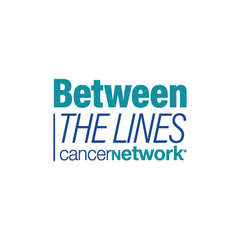
Previous Trials of ctDNA Analysis in Patients With CRC
Mark Lewis, MD, provides a historical perspective of circulating tumor DNA and discusses previous trials on ctDNA analysis in patients with CRC.
Episodes in this series

Transcript:
Mark Lewis, MD: I also wanted to use this slide to talk about how the past is prologue. What kind of work was done that led to the conception of GALAXY in the first place? I wanted to reference, just briefly, at least 3 other trials. The main thing that GALAXY I think has going for it is its size. It is larger by an order of magnitude than any other study I’m about to site. But I did want to talk about where it came from.
Back in 2016, there was a study by [Jeanne] Tie, [MD,] et al, of ctDNA [circulating tumor DNA] patterns after the resection of stage II colon cancer. And you are right that in GALAXY, to get to that ctDNA negative cohort, they excluded low risk stage II colon cancer, which we will revisit. Frankly, the adjuvant management of stage II colon cancer has been a management quandary going all the way back to the QUASAR study, which I think was in 2007, where we learned that there was a very modest survival benefit to be gleaned from giving stage II patients adjuvant chemotherapy. I think it was on the order of 3% to 4% in terms of absolute survival. In the Tie study, in a cohort of 178 patients who did not receive adjuvant chemotherapy after resection of stage II colon cancer, 164 were postoperative ctDNA negative, but 14 were positive, of which 11—which is a small number but still 80%, so a high relative risk—recurred at a median follow-up of 27 months. So the authors concluded, and I will quote them here, “ctDNA detection after stage II colon cancer resection provides direct evidence of residual disease and identifies patients at a very high risk of recurrence.” Again, planting the seed for what would become the GALAXY trial.
Then I wanted to reference the [Thomas] Reinert, [PhD,] study from JAMA Oncology in 2019 that looked at the time point of 30 days after surgery using the tumor-informed approach. It found a very strong prognostic effect for whether you are positive or negative at that 30-day time point. Basically you were 7 times more likely to relapse if you were positive than negative. So a very compelling hazard ratio.
Finally, I think it is important to mention work by [Aparna] Parikh, [MD,] et al, published in Clinical Cancer Research last year, which was a tumor-agnostic plasma-only assay drawn at landmark time points. What they did was look at after definitive therapy, whether that was after surgery or after the completion of adjuvant therapy. That was also highly prognostic, where out of 84 evaluable patients, all 15 who had a positive ctDNA signal at the first landmark time point, all of them recurred. The author specifically noted that they felt like this plasma-based assay was outperforming a traditional marker, which is carcinoembryonic antigen, or CEA. With that, where we came from and where we are with GALAXY, why don’t we move to the next slide?
Transcript edited for clarity.
Newsletter
Stay up to date on recent advances in the multidisciplinary approach to cancer.








































